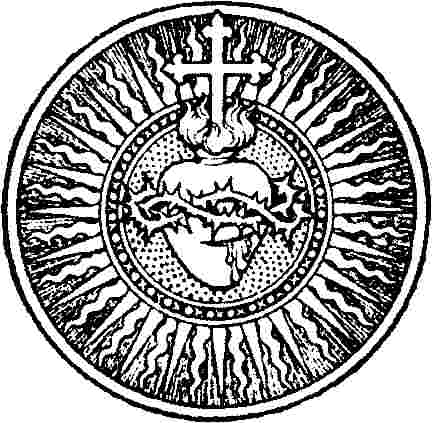
Ah, the soundbite. That idol of the Modern Age.
The title above is a sorry attempt at such.
Unfortunately—or rather not!—the most important things of life are not easily captured in soundbites.
And this website is an attempt to grapple with that which seems most important to my wife Kim and to myself.
Thus, it is difficult indeed to sum this website’s purpose up in a soundbite! What follows then, dear Lector, is a very personal attempt to bring together some diverse threads of this website.
Whether these threads have to do with His Sacred Heart, Catholic Tradition, the New Age or the ice cold threat of secular materialism, here I attempt to do what I cannot do in a soundbite: pull the threads all together …
Moreover, you will find this particular entry strewn – even littered! – with links to other places on the site. For if you, Lector, are interested, you can easily find some of the Key Posts wherein the various threads are more fully explored. Moreover, even the videos and book advertisements here have been specially chosen to try to illumine the nature of this site—which as I say is not easy.
To Guard Catholic Tradition
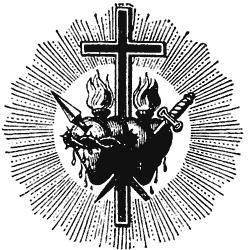
Easy or not, though, this site shares features with other traditional sites which seek to guard the Catholic Mystery. We are very concerned here with the traditional liturgy as well as the invasion of the Church by a subtle materialistic and worldly spirit.
As I recently suggested in a long review (here) of Canon Ripley’s This is the Faith, there is now downright embarrassment to speak of the Catholic Mystery in straightforward, unambiguous language.
Whether this is speaking of preternatural evil or Supernatural Glory matters not. If the non-material aspects of Creation are not outright dismissed, they are relativised or dressed up in equivocating terms.
When we subtract or relativise these dimensions, what we end up with is materialism. Whether this materialism is de facto or de jure is less important.
The modern world has been afflicted by such reductionist materialism for centuries. For centuries, the Catholic Church held out – valiantly. No longer.
This is why I believe Ripley’s book is so important. It can remind us of a relatively recent time (1951) when Catholicism refused point-blank to kowtow to often subtle, but insidious materialism.
Just as it refused to kowtow to what our present Holy Father (Benedict XVI) has called the “Dictatorship of Relativism”.
Thank God, the Holy Father sees this vividly. This is most evident in another book The Ratzinger Report, which is also reviewed here.
Here the man who is now our Holy Father also warns against the Catholic Church becoming a CLONE of Protestantism …
I like doing book reviews. They are an opportunity to point people towards thinkers that seem important to me. Moreover, in reviewing books, one can readily engage with the author’s thought. (One is likewise free to quote the author at some length, without concern for copyright issues.)
Thus you can find numerous reviews (with quotes) posted here steadily. I hope these point people in directions, which I think are not only important, but even crucial.
But I would be less than frank with you, dear Reader, if I did not admit that I hope to sell some copies too!
Towards a Traditional Catholic Apostolate
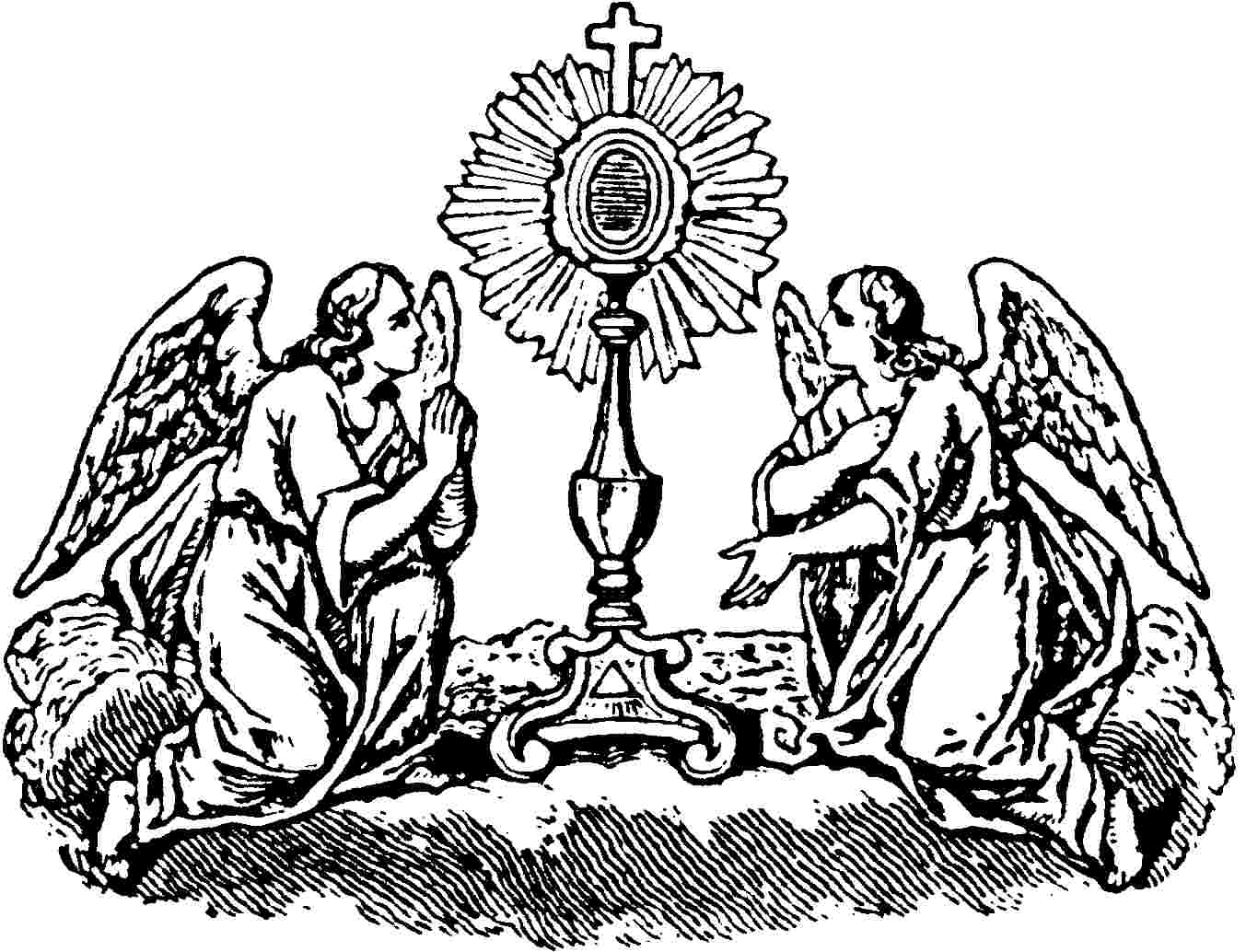
Now we believe this site is the beginning of some sort of traditional Catholic apostolate. As I indicated in my very first blog entry here, it is being born in difficult circumstances. That has not changed. And even a little income through the sale of books helps.
Yes there has been a rocky beginning and things remain rocky. But to return to my attempt to pull the pieces together…
There are some ways that this site clearly differs from many traditional Catholic approaches.
Any of you regularly following us will readily realise there is much here about the New Age.
This is obviously because Kim and myself are converts from the New Age. It seems to me I can help make reparation for nearly two decades of New Age activity by trying to raise consciousness of the dangers of the New Age is and how it differs from the Faith.
In particular, I want to do this in ways that are not necessarily obvious and yet seem important.
I also try to do this in places that are not always obvious. For example, a personally significant piece is my review of Graham Greene’s masterpiece about the Faith, The Power and the Glory.
This is not only the greatest novel I have ever read, it is – as I have tried to say in a rather offbeat way – a tragedy that highlights how very, very different the Catholic vision is from feel-good upbeat New Age denial.
Responding to the New Age Danger
In any event, traditional Catholics rarely engage the New Age movement, in my experience.
Yet there is poignant irony here. Much of the reason I remained in the New Age movement as long as I did, hinges on the fact that Traditional Catholicism was completely and utterly invisible to me.
That is to say: a non-materialistic, non-embarrassed Catholic Christianity, which celebrated its Mysteries as Mysteries, was totally off my radar screen.
But New Agers are drawn to Sacred Mystery. In my experience, they generally find things like evangelical Protestantism dull indeed. A Catholic Clone of Protestantism is not likely appeal much either.
But I wonder what many New Agers might feel if they stumbled into a Latin Mass with a priest who was not afraid to speak openly of the Mysteries of Trans-substantiation and Angels, among other Mysteries as well . . .
Certainly had I found such a thing twenty years ago, I would have scarcely believed it. I imagine I would have been jolted from my sleep and my life might have taken a different course …
As it happened, it took the unusual and anonymous book Meditations on the Tarot to wake me from my slumber.
And this is why, despite its problematic approach in certain secondary respects, I believe that its primary message is not only critical – but perhaps delivered in the ONLY way many a New Ager can hear it. Much more will be said in this regard.
For now, I will simply say the book has nothing to do with telling fortunes via tarot cards – and remark that the anonymous author’s primary message involves a breathtaking reverence for the Mystery of Calvary that floored me.
The author also defends not simply the Church, but in many ways, a very traditional Catholicism indeed.
He writes of the crying need for Tradition, Hierarchy and Dogma including the dogma of Papal Infallibility. He treats the Mysteries of the Church with veneration. The Reformation is continuously regarded as tragic.
He does not shy away from speaking of the “Lutheran heresy” and he speaks St Ignatius of Loyola as having atoned for the sin of Calvin. He also has nothing good at all to say of Vatican II.
As an erstwhile liberal New Ager, I once found this latter aspect of his writing very troubling indeed!
It took me years to see that the author’s critique of the Reformation and regard for Loyola pointed to something of crucial importance.
As he clearly stated, the anonymous author regarded as critically important that stream of European civilisation, which stayed faithful to Rome.
We refer here to what might be called the Tridentine Church. This is to speak of the Church, which resisted the Reformation, at least until Catholicism began to aspire to be a clone …
The anonymous author saw this tendency all too clearly. And this is why I believe he has nothing good to say of Vatican II.
Yes: this author led me to the Tridentine Catholic Church, which still had the courage to be Catholic. Here is why although superficially his book might look New Age – it can actually help save New Agers.
Traditional Catholic France
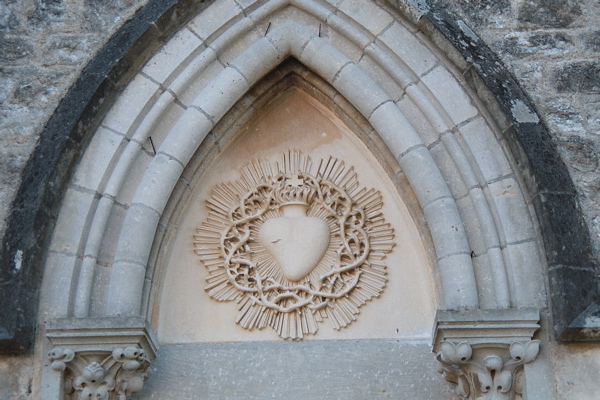
However, other things besides Meditations on the Tarot were to lead me in the same direction. These include a life-changing period in France, the ruins of traditional Catholic France.
In France, I understood far, far better why an anonymous Russian author who never lived in any French-speaking country wrote his book in French …
In France, I beheld also the wellsprings of the spirituality of the Sacred Heart. And my life changed as a result. Once upon a time, Tridentine traditional Catholicism was dominated by the spirituality of the Cor Jesu Sacratissimum.
As I say, the wellsprings for that were in a very traditional Catholic France. I have recently posted another lengthy, idiosyncratic book review, which speaks to both this and to my life-changing experience in that country. It is The Life of St. Margaret Mary Alacoque by Bishop Bougaud (here).
Pulling this together, what do we have so far? A website that seeks to guard the Catholic Tradition, particularly that of the Sacred Heart and the Tridentine Church, which is indebted to Catholic France and peculiarly concerned with the New Age and an anonymous dead Russian author (who I confess feels very living to me).
But this site differs from most Traditionalist sites in still further ways. For example, you will also find engagement with books of a very arid and secular nature.
Arid Secularism and Traditional Catholicism
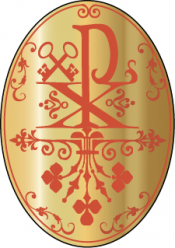
Unfortunately, I find it necessary to grapple with such books. For instance, something that has been enormously helpful to me is an admittedly Freudian, reductionist, faithless text entitled France and the Cult of the Sacred Heart.
But the research in this book is incredible. Unparalleled by anything I know in English. It can introduce a very important story, which lies at the heart of this project. Thus, the book is reviewed here.
I feel something similar about Charles Taylor. In many ways, his book A Secular Age suffers from subtle materialism – though not as badly as the former. But it is a masterpiece of research and acute insight. In powerful ways, Taylor points out the lie that secularism is some neutral, harmless thing that we all just naturally evolved into.
Reading Taylor only sharpened my long-held conviction that secularism necessarily involves a materialistic ideology being ruthlessly imposed on us, century by century.
Yes, Taylor does a better job than many traditional Catholics in making this lucid. Though the very traditional Charles A. Coulombe also serves the same end – admirably – for the American context in his Puritan’s Empire (reviewed in a lengthy and personal way here).
It is critical to understand these things. People argue that to strip Christian tradition, from public discourse is to “free” people from being “imposed upon”.
For example, this is the reason that some will tell you that it is better to call a Christmas tree a “holiday tree” in public. And local government in Birmingham, England proposed renaming Christmas as Winterval because Tradition was seen as imposition!
All too few understand that these supposedly “neutral” terms carry very much their own impositional ideology.
And both Taylor and Coulombe do very much to show how secularism involves a materialistic ideology constructed and imposed century upon century, which is very far from being neutral …
Yes for reasons that Coulombe especially, makes clear, we are now being pressured to say “happy holidays” instead of confessing our belief in Jesus Christ. Shop assistants in America risk their jobs for not kowtowing to this …
Meanwhile one can undertake a 50 billion dollar advertising programme to brainwash young and old alike that a brand is vital to their existence and no-one bats an eyelid …
Capitalism is another thing that we at this site are very concerned by. Here there seems to often be a split between European and American conservatives. Some Americans regard unfettered corporate libertarianism as somehow going hand-in-hand with their conservativism. (“Corporate libertarianism” is a good phrase I owe to this author.)
Frankly we are horrified not simply by the untold physical and mental agony it causes, but also by the clear destruction of tradition it entails. I touch on the latter point somewhat here.
There is also the matter of the environment and global warming. I refer to the Holy Father’s grave warnings on this here.
And there are still further threads I have hardly mentioned. In this regard I might point you to Kim’s piece here regarding Our Lady and the Rosary. I also like very much this piece by her on the liturgy. (The Elvis video at the end of this piece is particularly telling!).
I also touch on counter-revolution and counter-Enlightenment matters here and there.
There is also a series starting here on Valentin Tomberg’s legal works, which are very much within this stream of traditional thought running counter to the Enlightenment. All of this I want to expand on in time.
On Catholic Ireland
I also hope to expand on the most important matter of Catholic Ireland in time – a place that once resisted secular materialism and lived a Tridentine Catholicism in the most extraordinary ways, even well into the twentieth century . . .
Now all of the above relates to alternative trajectories to the major current trajectory of world civilisation destroying souls and the environment …
But we must stop somewhere! Obviously this entry is strewn with links to other pieces on this site.
Once more, this is because there are no soundbites with which to sum this project up. But for any who are interested, perhaps this entry can help. And again, if you have the patience to follow up some of the links, you can get a fuller picture.
In the end, any single entry is inadequate for a summing up. But I hope to achieve more in a book-length treatment of the above.
This is provisionally entitled: Cor Jesu Sacratissimum: From Materialism and the New Age to the Catholic Mystery. I am doing all I know how to do to get this self-published in the first part of the coming year.
In the next few days, there will be a long extract from the introduction of this book in the Articles.
Hopefully, this long introductory extract will also further serve to pull the pieces together. As I hope this will soon appear in print, I would be very grateful for any comments – either privately to my self or publicly on the site itself.
Again whether privately or publicly, I am very grateful to all of you who have given Kim and myself feedback. It HELPS. Thank you …
Your continued responses will also be very much appreciated. Just forgive me if circumstances mean that I shall be a little slow in replying.
Another thing we would be most grateful for is links made to this site.
As I have indicated, we believe this site is the beginning of some kind of apostolate. We pray, a serious one. Links to this site will make it more visible and we are thankful to all of you have done this for us.
Finally after the long extract appears in the Articles later on this week I may be quiet for a while in terms of weblog entries. However in this period of silence, I will endeavour to respond to any comments posted here.
Still things are not easy and I need something of a breather.
To my mind, this will be coming after four lengthy pieces that I hope speak to the heart of this site.
That is to say first the Ripley review and then the book review of Bougaud. Then, this present piece to be followed by the lengthy piece going up later this week in the articles.
Again after all of this, your comments would be most appreciated.
What do you make of all of this?
Does it make you happy? Angry? Bored to tears . . . ?
I’d like to know.
Update 2023: Belloc and More
Since this post was written thirteen years ago in 2010, much has changed and much has also stayed the same.
But a brief words about the changes seem in order. Perhaps the greatest one in my own direction at this site reflects my joyous discovery of the great Hilaire Belloc in the summer of 2012. I had known Belloc before—a little. But now I began to devour his books, one after another.
My later entries at this site owe more than I can ever tell you to beloved Belloc.
Another great change has been that I am now a published author with three books from Angelico Press (see advertising details below)


To all this, I might add that the above post was mainly concerned with my own activity at this website rather my wife Kim’s. When we started, I was—by a wide margin—the main contributor here. But Kim started posting more as the years went by.
We also introduced a YouTube Channel to which Kim has contributed in a few videos. Perhaps the most appropiate one to feature here is this autobiographical one, detailing her journey from Atheism to the Sacred Heart of Jesus:
And that, as they say, is that. Thank you, Lector, if you have persevered this ad-littered page to the end—and I hope you will have gained some idea what our work is all about!
Foreword for Monarchy by Roger Buck
Buying Books at Amazon Through These Links Gives Us a Commission. This Supports Our Apostolate. Thank You if You Can Help Us Like This!

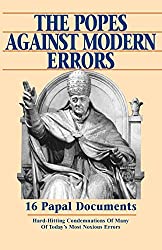
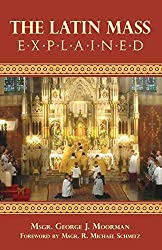
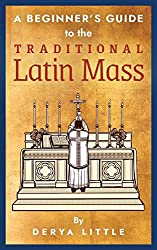
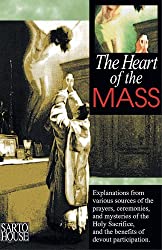
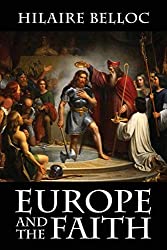
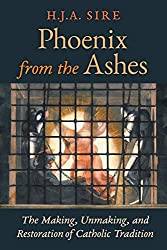
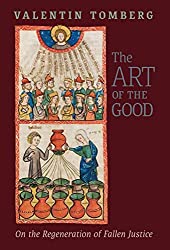

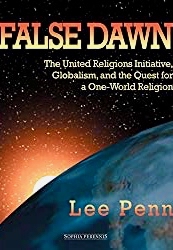


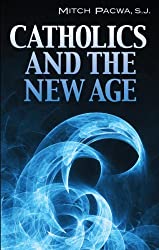
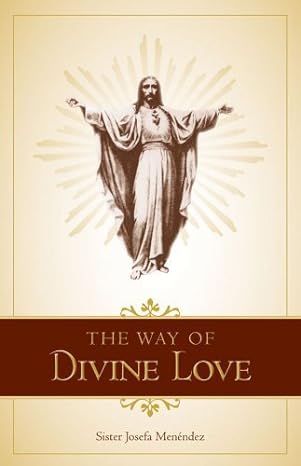
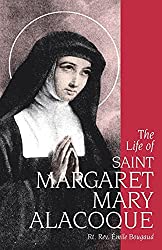
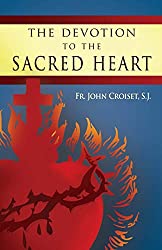
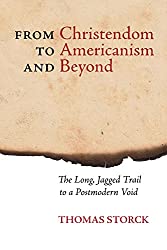
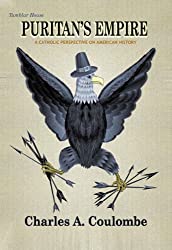
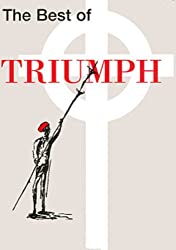

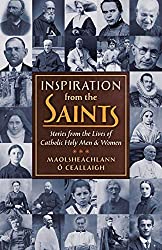
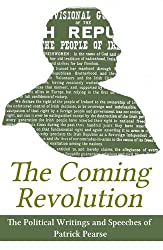
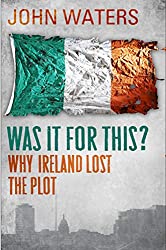
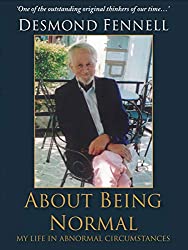
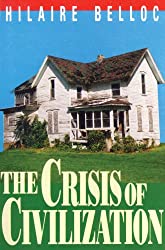
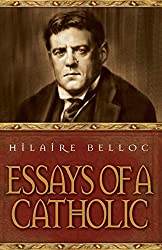
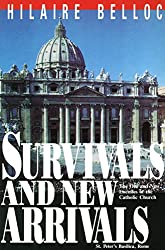


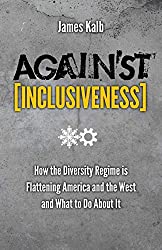
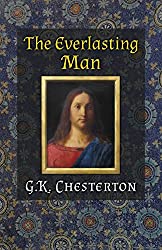
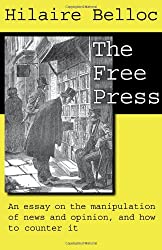
Comments
comments are currently closed
9 responses to “On this Traditional Catholic Website Devoted to His Most Sacred Heart”
hello.my sentiments entirely.the catholic church needs more people like yourselves in keeping the sacred traditions alive.i love my faith and i enjoy your writings and look forward to reading more of your erudite writings.god bless you both .philip johnson.
Thank you again, most warmly Philip!
Your four words “i love my faith” say so very much. Catholics do find such PROFOUND love and joy in their faith and yet this can be so so invisible …
I will also note that I am quite aware that the above post has the potential to offend several different constituencies of people simultaneously.
It is not something I like doing. And I am struggling with how not to duck saying important things and yet be charitable at the same time.
So I like getting any feedback at all.
As an example of what I mean: in just the last few hours, I had an unsettling disturbing experience that left me feeling very keenly the power of New Age ideology. I also saw vividly how clearly related this was to Protestant and secular trajectories of recent centuries – most particularly in Britain.
I felt ALARMED by what I saw.
Yet how to write honestly without potentially offending New Agers, Protestants, secularists and the British people? I am more or less British myself …
And yet it feels crucial not to hold my tongue …
Feedback will hopefully help me refine what I say without varnishing it, yet without I pray becoming uncharitable either.
So thank you again, Philip. It all helps me with gauging …
[…] I said before here, I want to take a little […]
The thought occurs: I wish you would take a more New Age point of view.
What if the Church had everything it needed, right now? What if it was sufficient in itself, or to be more Christian, that Christ was sufficient for the Church? What if the Church really is the stainless Bride of Christ?There would be nothing to guard, nothing to preserve because all would be guarded and preserved, perfectly, right now, world without end.
What if the men (and it is just men, isn’t it?) that lead the Church are exactly the people that need to be leading the Church right now? That their decisions are perfect, just in time, just right.
The Church does not have a shortage of priests or a shortage of Mass. There is precisely the right amount for right now. The world has what it needs.
That said, isn’t the error not to accept the guidance of the church? These leaders have said that it is time to move on, to leave certain things, like the Latin Mass, in the past, or largely in the past and to move forward with what is contained in Vatican II.
This does not discount the importance of our own work. We have the opportunity to participate, in ways sanctioned by the Church, of growing the next generation of priests and other leaders.
That’s what I mean by New Agey. It would turn a number of posts on their heads.
I’m not going to argue with you about how you feel. Neither do I intend to say your feelings are invalid or wrong in any way.
What I don’t understand is the tradition of dissent within the Catholic Church. I’m not sure how you dissent from the Truth. When it has been decided there are certain people who are able to define what the Truth is, when it has been decided that God has appointed certain men to lead, what is there to do but follow? I suppose you could join the Protestant heretics but I don’t want to be seen as recommending it.
I don’t think the Catholic Church wants to become a clone of Protestantism. For instance, there is no move to go “low church” with the lovely cathedrals being turned into bare meeting rooms, without art, stained glass, incense, or altar. To ask the question in a very pointed way, even if Vatican II means that Catholicism is to transform itself into just another Protestant denomination, who are you to argue (assuming you are arguing, of course)?
One last thing: long experience in the halls of “evil” capitalist corporations has shown that when you are able to distill what you want to do into a sentence, preferably a short one, you are much more likely to succeed because you have, within yourself, well and truly understood what you want. I urge you to find that “soundbite.”
All my best to you,
Billy
Billy – I thank you for this honest, complex, thoughtful response. It is a real gift to me.
I do not wish to argue either. I wonder if I might make some useful (?) clarifications.
I will begin with the last of your comments:
“One last thing: long experience in the halls of “evil” capitalist corporations has shown that when you are able to distill what you want to do into a sentence …”
Yes I agree there is a role for soundbites in certain contexts.
I would like to affirm good work being done by good people in capitalist corporations. I hope I have called neither capitalism nor corporations evil per se.
I did speak about “unfettered corporate libertarianism” bringing agony, I know. But I did not want to offend people who I am sure are called to work within the corporations. People such as yourself I imagine are most needed there. And I apologise if I caused you any offense.
I feel I must try to speak about controversial things – and getting feedback like yours will help me finetune it.
Again I really thank you. Speaking about controversy is not easy. Especially into something of a vacuum. Through internet analytics, I know there are numerous people following this site, but what they think of it is often hard to guage.
Let me say some things about earlier thoughts in your complex response. Again I hope to clarify rather than argue.
You write:
“The thought occurs: I wish you would take a more New Age point of view.
What if the Church had everything it needed, right now? …
That’s what I mean by New Agey. It would turn a number of posts on their heads.”
Billy I think what you are saying – please correct me if I am wrong! – is something to the effect that a rather more positive approach, not unlike New Age thinking would overturn much that I am saying.
Yes … it would indeed.
I will simply say this. I have developed over years a more tragic picture here I think than you have. But possibly I understand these thoughts better than it might appear.
Precisely because the development did take me years and years.
This is because my journey from New Ager to a far more traditional mould was TORTUROUS.
Over the years I thought things that I think are not unlike what you are possibly encouraging me to think.
“Am I really right in seeing something so tragic in both the Church today and the New Age ?” Torturous doubt for year after year …
Who I am today is a person who after this very torturous journey of doubt is now convinced of things which do not convince you.
And I do not want to convince you. I want to find the most creative loving way I can to express these pained convictions arrived at after years of suffering, really.
Finally something we have much resonance on I would hope is the issue of dissent.
I very much hope that I am not in dissent from the magisterium in what I write of these controversies. It was Joseph Cardinal Ratzinger who warned of the danger of the post-Vatican II Church becoming a Protestant “clone” not myself.
This is spoken of here at this site, where I have highlighted the tragic picture Ratzinger has of many – not all! – post Vatican II developments
There are traditionalists very much in dissent with the Holy Father. I pray I am not one of them.
Really as I see myself – with all my flawed perception of course – I feel that I am very deeply supportive of the Holy Father. Really, he is a hero to me.
A lonely man working round the clock with deepest moral gravitas …
This site aims to support what this lonely beautiful and heroic individual is doing.
And if I am getting it wrong, I really welcome more honest and thoughtful feedback like your own …
There are changes that remain tue to the essential spirit of an impulse, for example refinements taking account of better understanding of the human soul, and changes which ‘come from outside pressure’ where the link to the essential spirit is lost.
After all Christ himself did not reject the mass of tradition which was Judaism, but brought a new understanding of what the ‘love of God’ means.
Peter, it is very good to have your voice here again.
And the distinction you ably make between two different kinds of development is a very important one indeed.
Not so long ago, in relation to the Post-Vatican II Church the Holy Father spoke of a “Hermeneutic of Rupture” – as you ably put it where “the link to the essential spirit is lost.”
vs.
a “Hermeneutic of Continuity” which can include genuine reform. In fact although many traditionalists have picked up on the term “Hermeneutic of Continuity, he also called this very same thing a “Hermeneutic of Reform”.
Reform rather than rupture is needed at times and yes as you say this was demonstrated in the most sublime way conceivable by Our Lord who would not be an agent of rupture and revolution, but of infinite healing and love …
Thank you again, friend unknown.
Hi Roger! Sorry it’s been so long. Happy New Year to you and your family. Or rather happy feast of Mary, Mother of God!
Fred! It is very good to hear your voice again – at this new blog.
If you have looked at it, you will see it has taken on a far more traditional mould than my earlier blog effort …
I see your link includes reference to the incomparable Charles Peguy. I must check this out …
Limited internet access is unfortunately slowing me down in many respects – including seeing and approving your most welcome comment here.
But as time permits, I would like to return to your efforts in cyberspace. I always admired both the clarity of thinking and the evident depth of erudition, piety and feeling in your Catholic reflexions.
Even while events in France helped led me to a far more traditional position than many old friends and readers will be comfortable with …